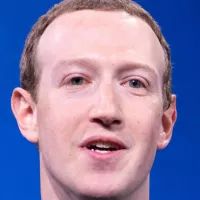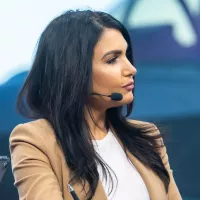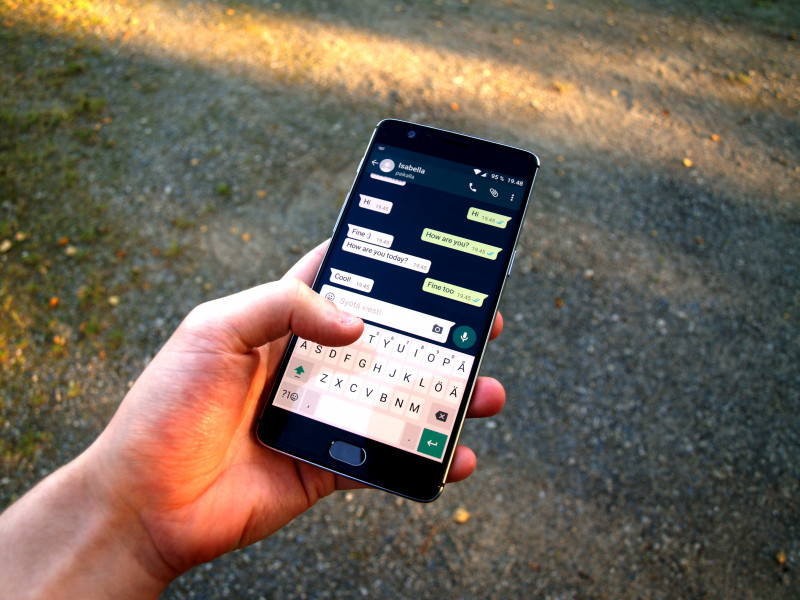WhatsApp is a widely-used instant messaging and VoIP service owned by Meta. It enables users to exchange text, voice, and video messages, make calls, and share various types of content like images, documents, and locations. The app is available on mobile devices and computers, requiring a phone number for registration. WhatsApp also offers a separate business app, WhatsApp Business, for communication with regular WhatsApp users.
April 2012: WhatsApp Handles Two Billion Messages Per Day
In April 2012, WhatsApp was handling two billion messages per day, which was a significant increase from the one billion messages per day it handled the previous October.
August 2012: WhatsApp Handles Ten Billion Messages Per Day
In August 2012, WhatsApp handled ten billion messages per day, growing from two billion in April 2012, and one billion the previous October.
June 13, 2013: WhatsApp Processes 27 Billion Messages
On June 13, 2013, WhatsApp announced that they had reached their new daily record by processing 27 billion messages.
2013: WhatsApp Installed on 92% of Smartphones in Israel
According to Globes, in 2013, the WhatsApp application was installed on 92% of all smartphones in Israel, with 86% of users reporting daily use.
2013: WhatsApp Inc. files DMCA takedown of "WhatsApp Plus" discussion thread
In 2013, WhatsApp Inc. filed for the DMCA takedown of the discussion thread on the XDA Developers forums about the then popular third-party client "WhatsApp Plus".
2013: United Arab Emirates banned WhatsApp video chat and VoIP call
In as early as 2013, the United Arab Emirates banned WhatsApp video chat and VoIP call applications due to what is often reported as an effort to protect the commercial interests of their home grown nationally owned telecom providers (du and Etisalat).
April 22, 2014: WhatsApp Exceeds 500 Million Monthly Active Users
By April 22, 2014, WhatsApp had over 500 million monthly active users, 700 million photos and 100 million videos were being shared daily, and the messaging system was handling more than 10 billion messages each day.
May 9, 2014: Iran proposes blocking WhatsApp access
On May 9, 2014, the government of Iran announced that it had proposed to block the access to WhatsApp service to Iranian residents. The reason given was the ownership of WhatsApp by Facebook founder Mark Zuckerberg. However, Iranian president Hassan Rouhani issued an order to the Ministry of ICT to stop filtering WhatsApp.
May 2014: WhatsApp Crosses 50 Million Users in India
In May 2014, WhatsApp crossed 50 million monthly active users in India, which is also its largest country by the number of monthly active users.
August 24, 2014: WhatsApp Reaches 600 Million Active Users
On August 24, 2014, Koum announced on his Twitter account that WhatsApp had over 600 million active users worldwide. At that point WhatsApp was adding about 25 million new users every month, or 833,000 active users per day.
October 2014: WhatsApp Reaches 70 Million Users in India
In October 2014, WhatsApp reached 70 million monthly active users in India, making users in India 10% of WhatsApp's total user base.
November 2015: ISIS used WhatsApp to plot Paris attacks
In November 2015, it was reported that terrorist organization ISIS had been using WhatsApp to plot the November 2015 Paris attacks.
2015: WhatsApp Bans Third-Party Clients
In 2015, WhatsApp issued cease and desist orders to developers of third-party WhatsApp clients that were reverse-engineering the WhatsApp mobile app, leading to bans for users of those clients.
March 2, 2016: Facebook's vice-president for Latin America released
On March 2, 2016, Diego Dzodan, Facebook's vice-president for Latin America, was released after being arrested the day before, because the Court of Appeal held that the arrest was disproportionate and unreasonable.
May 2, 2016: Mobile providers in Brazil ordered to block WhatsApp
On May 2, 2016, mobile providers in Brazil were ordered to block WhatsApp for 72 hours for the service's second failure to cooperate with criminal court orders. Once again, the block was lifted following an appeal, after less than 24 hours.
May 2016: WhatsApp users tricked into downloading malware
In May 2016, some WhatsApp users were tricked into downloading a third-party application called WhatsApp Gold, which infected the users' phones with malware.
December 2016: WhatsApp scam in Brazil
Since December 2016, a WhatsApp message promising access to friends' conversations or contact lists has tricked over 1.5 million people in Brazil into clicking and losing money by sending paid text messages.
2016: Turkey temporarily banned WhatsApp
In 2016, Turkey temporarily banned WhatsApp following the assassination of the Russian ambassador to Turkey.
2016: WhatsApp Accused of Copying iMessage Features
In 2016, WhatsApp was accused of copying features from a then-unreleased version of iMessage.
February 2017: WhatsApp Reaches 1.2 Billion Users Globally
By February 2017, WhatsApp had over 1.2 billion users globally, reaching 1.5 billion monthly active users by the end of 2017.
March 2017: British Home Secretary calls for access to encrypted messaging services
In March 2017, British Home Secretary Amber Rudd said encryption capabilities of messaging tools like WhatsApp are unacceptable, as news reported that Khalid Masood used the application several minutes before perpetrating the 2017 Westminster attack. Rudd publicly called for police and intelligence agencies to be given access to WhatsApp and other encrypted messaging services to prevent future terror attacks.
April 2017: WhatsApp groups used to mobilize stone-pelters in Jammu and Kashmir
In April 2017, nearly 300 WhatsApp groups were reportedly being used to mobilize stone-pelters in Jammu and Kashmir to disrupt security forces' operations. Police shut down 90% of these groups after contacting their admins. The National Investigation Agency found that some group members were residents of Pakistan and gulf nations and that Indian stone pelters were getting funded through barter trade from Pakistan and other indirect means.
April 2017: Stockholm truck attack perpetrator used WhatsApp
In April 2017, the perpetrator of the Stockholm truck attack reportedly used WhatsApp to exchange messages with an ISIS supporter shortly before and after the incident. The messages involved discussing how to make an explosive device and a confession to the attack.
May 2017: WhatsApp Users Spend 340 Million Minutes on Video Calls Daily
In May 2017, it was reported that WhatsApp users spend over 340 million minutes on video calls each day on the app.
September 2017: WhatsApp service blocked in China
In September 2017, security researchers reported to The New York Times that the WhatsApp service had been completely blocked in China.
January 2018: WhatsApp Launches Business Apps
In January 2018, WhatsApp launched two business-oriented apps, separated by the intended userbase.
2018: NHS staff use of WhatsApp raises concerns
In 2018, it was reported that around 500,000 National Health Service (NHS) staff used WhatsApp and other instant messaging systems at work. Approximately 29,000 faced disciplinary action for doing so. Higher usage was reported by frontline clinical staff to keep up with care needs, even though NHS trust policies do not permit their use.
March 2019: WhatsApp warns against unofficial modified versions
In March 2019, WhatsApp released a guide for users who had installed unofficial modified versions of WhatsApp and warned that it may ban those using unofficial clients.
May 2019: WhatsApp attacked by hackers who installed spyware
In May 2019, WhatsApp was attacked by hackers who installed spyware on victims' smartphones. The hack, allegedly developed by Israeli surveillance technology firm NSO Group, injected malware onto WhatsApp users' phones via a remote-exploit bug in the app's Voice over IP calling functions, even if the user did not answer the call.
October 2019: WhatsApp files lawsuit against NSO Group
In October 2019, WhatsApp filed a lawsuit against NSO Group in a San Francisco court, claiming that the alleged cyberattack violated US laws, including the Computer Fraud and Abuse Act (CFAA). WhatsApp stated that the exploit targeted at least 100 human-rights defenders, journalists and other members of civil society among a total of 1,400 users in 20 countries.
January 2020: WhatsApp Achieves 5 Billion Installs on Google Play Store
In January 2020, WhatsApp reached over 5 billion installs on Google Play Store making it only the second non-Google app to achieve this milestone.
January 2020: Jeff Bezos' phone hacked through WhatsApp message
In January 2020, a digital forensic analysis revealed that Amazon founder Jeff Bezos received an encrypted message on WhatsApp from Saudi Arabia's Crown Prince Mohammed bin Salman, which contained a malicious file. The receipt of the file resulted in Bezos' phone being hacked. The United Nations later confirmed that Jeff Bezos' phone was hacked through WhatsApp.
February 2020: WhatsApp Reaches 2 Billion Users Globally
As of February 2020, WhatsApp had over 2 billion users globally.
April 2020: NSO Group holds governmental clients accountable for human rights abuses
In April 2020, the NSO Group held its governmental clients accountable for the allegation of human rights abuses by WhatsApp. The group claimed that the lawsuit brought against the company by WhatsApp threatened to infringe on its clients' "national security and foreign policy concerns".
June 23, 2020: Brazil's Central Bank orders Visa and Mastercard to stop working with WhatsApp on electronic payment system
On June 23, 2020, Brazil's Central Bank issued an order to payment card companies Visa and Mastercard to stop working with WhatsApp on its new electronic payment system. The decision was taken to "preserve an adequate competitive environment" in the mobile payments space and to ensure "functioning of a payment system that's interchangeable, fast, secure, transparent, open and cheap."
July 2020: US federal judge rules lawsuit against NSO Group can proceed
In July 2020, a US federal judge ruled that the lawsuit against NSO group could proceed. NSO Group filed a motion to have the lawsuit dismissed, but the judge denied all of its arguments.
October 2020: WhatsApp Business API Pricing Tiers Introduced
In October 2020, Facebook announced the introduction of pricing tiers for services offered via the WhatsApp Business API, which were charged on a per-message basis.
January 2021: WhatsApp vulnerability patched
In January 2021, a vulnerability that allowed San Diego-based startup Boldend to hack WhatsApp's encryption and access user data was reportedly patched.
July 2021: Cuban government blocked access to WhatsApp during anti-government protests
In July 2021, the Cuban government blocked access to several social media platforms, including WhatsApp, to curb the spread of information during the anti-government protests.
August 2021: WhatsApp Blocked in Zambia During Election
In August 2021, Access Now reported that WhatsApp and other social media apps were blocked in Zambia during the general election, leading to a significant drop in traffic. The Zambian government did not make any official statements about the block.
November 2021: WhatsApp tracked users from China and Macau
In November 2021, WhatsApp began tracking seven users from China and Macau following a request from US DEA investigators. The app collected data on user contacts, frequency of communication, and usage patterns.
November 29, 2021: FBI document reveals WhatsApp provides user data to law enforcement
On November 29, 2021, an FBI document revealed that WhatsApp responds to law enforcement warrants and subpoenas within minutes, providing user metadata, including contact information and address book details, to authorities.
December 2021: Swiss army bans WhatsApp due to data security concerns
In December 2021, the Swiss army banned the use of WhatsApp and several other non-Swiss encrypted messaging services by army personnel. The ban was prompted by concerns of US authorities potentially accessing user data for such apps because of the CLOUD Act. The army recommended that all army personnel use Threema instead.
2021: WhatsApp and iMessage vulnerable to real-time searches
In 2021, an FBI document revealed that WhatsApp and iMessage are vulnerable to law-enforcement real-time searches.
January 2022: Allegations of Indian political party hacking WhatsApp accounts
In January 2022, it was claimed that BJP, an Indian political party, allegedly used an app called Tek Fog, which was capable of hacking inactive WhatsApp accounts to mass message their contacts with propaganda. It was later determined that staff of their Meta investigative team had been duped by false information.
May 2022: ISIS sympathizer arrested based on WhatsApp data
In May 2022, the FBI stated that an ISIS sympathizer, who was plotting to assassinate George W. Bush, was arrested based on his WhatsApp data. His WhatsApp account was placed under surveillance.
September 2022: Critical security issue in WhatsApp's Android video call feature was patched
In September 2022, a critical security issue was reported in WhatsApp's Android video call feature. An integer overflow bug allowed a malicious user to take full control of the victim's application once a video call between two WhatsApp users was established. The issue was patched on the day it was officially reported.
September 2022: Meta answers and is unblocked.
WhatsApp was blocked permanently until Meta answers September 2022.
May 2023: Inquiry into COVID-19 pandemic faces challenges due to WhatsApp usage
In May 2023, the official inquiry into the COVID-19 pandemic in the UK faced challenges in gathering evidence because the government routinely used WhatsApp to make decisions, including on personal devices. There were issues with recovering messages from a compromised device and accessing material selected as relevant by the Cabinet Office.
2023: WhatsApp usage in UK government institutions raises concerns
As of 2023, WhatsApp is widely used by government institutions in the UK, though this use is viewed as problematical, as it hinders the public, including journalists, from obtaining accurate government records when making freedom of information requests.
July 2024: WhatsApp Reaches 100 Million Users in the United States
In July 2024, WhatsApp reached 100 million users in the United States.
2025: WhatsApp users targeted by spyware
In 2025, WhatsApp alerted 90 journalists and other members of civil society that they had been targeted by spyware used by the Israeli technology company Paragon Solutions.
Mentioned in this timeline

Jeff Bezos is an American businessman renowned as the founder...

Mark Zuckerberg is an American businessman and programmer best known...

Instagram is a photo and video-sharing social networking service owned...

Peter Thiel is a German-American entrepreneur venture capitalist and political...
Facebook is a social media and networking service created in...

George W Bush the rd U S President - is...
Trending

10 months ago Hugh Grant's forgotten Bram Stoker adaptation explored: A weird cinematic journey.

10 months ago Kevin Kiley faces constituent pressure, hosts virtual town hall after criticism.
Lucinda Williams is an acclaimed American singer-songwriter and guitarist known for her slow deliberate work and the critical praise her...
8 months ago Savannah Guthrie and Craig Melvin Temporarily Replaced on Today Show: Here's Why
3 months ago UPS Driver Dies After Train Collision in Hunt County, North Texas

7 months ago Molly Qerim departs ESPN's First Take, shares reason, and flaunts NBA style on social media.
Popular

Thomas Douglas Homan is an American law enforcement officer who...

Martin Luther King Jr was a pivotal leader in the...

XXXTentacion born Jahseh Dwayne Ricardo Onfroy was a controversial yet...

Instagram is a photo and video-sharing social networking service owned...

Jupiter is the fifth and largest planet from the Sun...

KFC or Kentucky Fried Chicken is an American fast-food chain...
